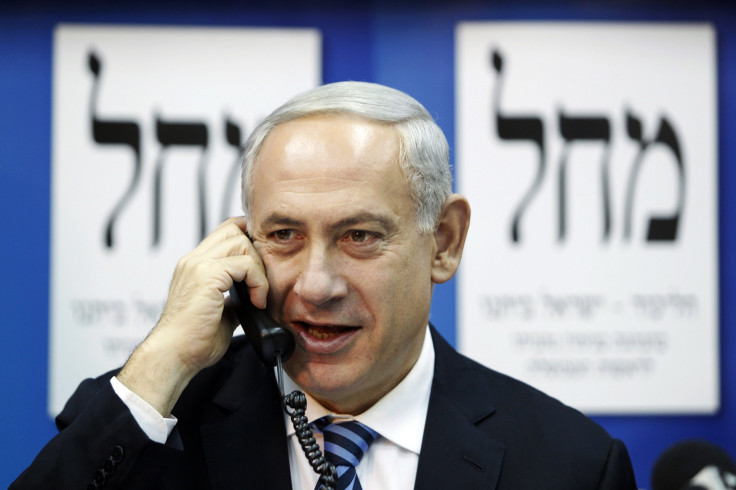Israel OKs Palestinian Prisoner Release To Revive Peace Talks

Israel's Cabinet Sunday approved the release of 104 Arab prisoners to help revive peace talks with the Palestinians after nearly three years of diplomatic stagnation.
Hours later, the U.S. State Department said talks will resume in Washington on Monday.
Thirteen ministers in Prime Minister Benjamin Netanyahu's coalition Cabinet voted in favor of the prisoner release, seven voted against and two abstained, a government official said.
"The Cabinet has authorized the opening of diplomatic talks between Israel and the Palestinians," said a statement issued by the prime minister's office.
"This moment is not easy for me, is not easy for the Cabinet ministers, and is not easy especially for the bereaved families, whose feelings I understand," Netanyahu said when the Cabinet met, referring to families who have lost members in terror attacks. "But there are moments in which tough decisions must be made for the good of the nation, and this is one of those moments."
The list of prisoners who may be released in coming days, the Washington Post reports, includes Palestinian militants who threw fire bombs, in one case at a bus with children aboard; stabbed and shot civilians, including women, elderly Jews and suspected Palestinian collaborators; and ambushed and killed border guards, police, security agents and soldiers. All of them have been in prison prior to 1993; some were serving life sentences.
The Israeli public considers them terrorists with blood on their hands. Palestinians see them as freedom fighters struggling to reclaim their homeland and oust the occupiers. Palestinian Authority President Mahmoud Abbas and his leadership refused to return to the negotiating table without their release.
Justice Minister Tzipi Livni, who is to head Israel's negotiation team, told her colleagues that resuming talks with the Palestinians was a vital national interest. "Today's Cabinet decision is one of the most important for the future of Israel... Starting a (peace) process is in Israel's security and strategic interests," Livni said, according to Reuters.
The prisoner release would allow Netanyahu to sidestep other Palestinian demands, such as a halt to Jewish settlement expansion in the occupied territories and a guarantee that negotiations over borders will be based on boundaries from before the 1967 Middle East war, when Israel captured the West Bank, Gaza Strip and East Jerusalem.
Chief Palestinian negotiator Saeb Erekat welcomed Israel's decision, which he said had come 14 years late, and pledged to work for the release of all prisoners held by Israel.
"This Israeli Cabinet decision is an overdue step towards the implementation of the Sharm el-Sheikh [Egypt] agreement of 1999," he said in a statement. "We call on Israel to seize the opportunity ... to put an end to decades of occupation and exile and to start a new stage of justice, freedom and peace for Israel, Palestine and the rest of the region."
Appealing for support on his Facebook page Saturday, Netanyahu said the inmates would be freed in groups only after the start of talks, expected to last at least nine months.
The Cabinet also discussed legislation that would require a referendum on any statehood deal reached with the Palestinians involving a withdrawal from land Israel captured in 1967. It will be sent for parliamentary debate shortly.
Israeli officials said the prisoners will be released “in stages” four times over the next nine months, with the first release to take place soon after Erekat sits down with Livni, in a meeting with U.S. Secretary of State John Kerry in Washington, which could take place this week.
Before the Cabinet vote, hundreds of relatives of Israelies killed by the prisoners protested the release outside the Knesset, the AP reported. Families held pictures of slain loved ones and chanted, "Terrorists must not be freed."
One of Netanyahu's major coalition partners, Naftali Bennett of the right-wing, settler-backed Jewish Home Party, took part in the rally. "Whoever demands the killers of women and children to be freed are not worthy to be called a partner," he said, referring to Abbas. "We have nothing to negotiate with he who praises the killers of women and children."
Bennett has threatened to pull his party out of the government if the prime minister agrees to other Palestinian demands, such as recognizing the 1967 line as a base for talks.
© Copyright IBTimes 2024. All rights reserved.





















